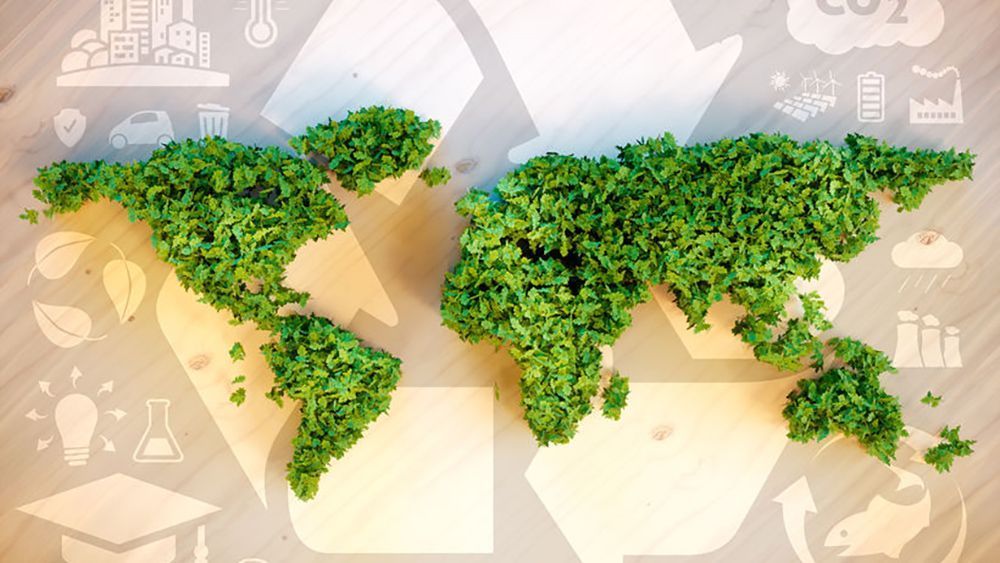
Biodegradable and/or compostable
The current demand of ecofriendly products has inspired the plastic industry to develop new materials that promote a more responsible and sustainable way of using and discarding those plastics which have risk of being dumped into the environment. At Parnoplast we understand that, nowadays, plastics have multiple advantages that make them indispensable in certain and diverse applications. Nevertheless, the amount of plastic waste produced worldwide increases and, sometimes, this waste is not optimally managed through a recycling process, thus not contributing to the Circular Economy.
That is why at Parnoplast we manufacture biodegradable and/or compostable products, in order to satisfy our clients’ needs by offering to adapt the performance of the traditional thermoplastics to the current demand of the final consumers.
The manufacture of the compostable and/or biodegradable materials of Parnoplast is respectful with the environment. We are aware of the active collaboration in caringfor the environment and of the social and economic benefits related to this sustainability action.
BIODEGRADABLE
Main features
Acceleration of the degradation process:
Our EcoParno products have a chemical modification that allows them to accelerate their own degradation process, achieving a reduction of this process in approximately 10 years, depending on the thickness of the sheet and the final location of the manufactured parts. Acceleration occurs when the material comes into contact with the medium (action of the sun, rain, oxygen and microorganisms), generating a colony of bacteria capable of converting the polymer chain of certain thermoplastics into CO2, H2O and biomass.
Applicable regulations:
The products are biodegradable in different environments: aerobic, anaerobic, raw sewage and sea water, according to their technical regulation (ISO 14855, ISO 15985, ISO 14853, ASTM D6691). These materials are non-toxic and they are not OXO-degradable, they donot contain heavy metals and meet the requirements of the European Parliament and Council Directive 94/62/EC of 20 December 1994 on packaging and packaging waste. They fulfill the requirements of the regulations EC related to products intended to come into contact with food: Regulation (EC) 1935/2004, (EC) 1895/2005, (EC) 2023/2006, (EC) 19/2007, (EC) 975/2009, (EC) 174/2015 y (EC) 1416/2016.
Mechanical properties of PS, PP and PE:
Biodegradable materials are produced on a polystyrene, polypropylene and polyethylene basis, thus allowing the mechanical properties of these thermoplastics to be maintained.
EcoParno-PS product allows us to obtain a sheet with excellent mechanical properties (high resistance to impact, high ductility and flexibility), as well as maintaining a good print quality after the application of corona treatment.
EcoParno-PP product allows us to obtain a product with high chemical resistance (high resistance to corrosion by concentrated or diluted acids, alcohols, fats and oils and aromatic hydrocarbons) and good dielectric properties.
EcoParno-PE product allows us to obtain a sheet with excellent chemical resistance to acids, alcohols, mild oxidants, reducing agents, fats and oils, as well as good resistance to wear and abrasion.
Reusable and recyclable:
Products manufactured from our EcoParno sheet are 100% reusable, thus reducing the resources required in production, and are fully recyclable through the usual recovery processes.
COMPOSTABLE
Main features
PLA and other bioplastics:
Compostable products of Parnoplast include two products: polylactic acid (PLA) and other products made from complete bio-based and biodegradable compounds (mainly obtained from recovered potatoes, grains, roots or seed flours). PLA is a thermoplastic resin derived from renewable resources annually and it is specifically designed for using in fresh food packaging and food service applications (dairy containers, food service, clear food containers or cold drink cups). The biopolymers obtained from recovered potatoes, which contain more than 60% bio or vegetable materials, are mainly used in applications such as consumer goods and packaging, agricultural products and transport trays, among others.
Applicable regulations:
Materials produced at Parnoplast fulfill the requirements of the regulations EN 13432 (Requirements for packaging recoverable through composting and biodegradation).
Similar properties to traditional thermoplastics:
To the advantages of the bioplastics, such as the aspect of reducing non-biodegradable waste and/or aspects of environmental care, we can add the detail of similar properties that bioplastics have in comparison with those of more traditional use:
- PLA has similar properties to PET. It has high transparence and shine and it is a good barrier to odors.
- The polymers based on the starch have similar properties to PE and PP, are entirely compostable and have a high permeability.
- The polymers based on cellulose have similar properties to PS.
Degradation of the materials in organic compost:
The degradation process of the compostable plastics allows to convert the plastic products into organic compost through a process like those realized by other organic matter in the nature. The degradation process is done in industrial composting facilities where, after a certain time, compostable products are converted into quality compost, water and CO2. This treatment favors the return of organic matter to the soil and its reinsertion in natural cycles. One of the advantages of container/pieces made with our compostable sheets is the guarantee that the raw materials used in their fabrication will not produce toxins at the end of the product’s useful life.


